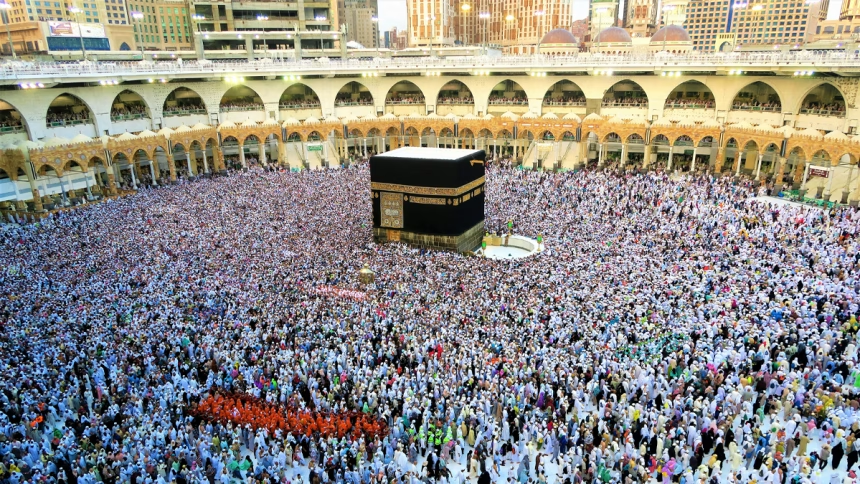As over two million pilgrims gather in the Kingdom of Saudi Arabia for Hajj 2025, the nation’s health authorities have reported zero cases of epidemic diseases, affirming that the annual pilgrimage remains safe and secure for all participants.
Saudi Arabia’s Minister of Health, Fahad Al-Jalajel, made the announcement during a recent press conference in Riyadh, underscoring the country’s commitment to safeguarding the health of pilgrims through meticulous planning and advanced medical infrastructure.
“We are pleased to announce that no epidemic cases have been detected so far and there is no risk for outbreak of diseases. The health and safety of pilgrims remain our highest priority,” said Al-Jalajel.
Months of Preparation and Global Collaboration Saudi Arabia’s Hajj readiness for 2025 began several months in advance, guided by the directives of King Salman bin Abdulaziz Al Saud and Crown Prince Mohammed bin Salman. Health authorities conducted global disease risk assessments for yellow fever, polio, and meningitis, leading to the implementation of strict entry requirements and the rollout of a new “health capability” standard. These measures ensure pilgrims are medically prepared to perform the Hajj rituals safely.
The extensive preparations involved cross-sector collaboration between public institutions, private entities, and non-governmental organizations, reinforcing the Kingdom’s position as a global leader in managing mass gatherings.
“Our story with Hajj is long-standing, but every year we write a new chapter – with greater readiness, deeper awareness, and smarter technology,” Al-Jalajel noted.
On-the-Ground Medical Services and Emergency SupportSince the arrival of the first flight under the Makkah Route Initiative, 14 entry points across land, air, and sea have been staffed with dedicated medical teams to provide immediate healthcare services.
So far, more than 50,000 health interventions have been delivered, including 140 surgeries, 65 cardiac catheterizations, and six open-heart procedures. To support these efforts, the Ministry of Health has deployed:
- 11 medical evacuation aircraft
- 900 ambulances
- 71 new emergency points
- Over 7,500 paramedics
A 60% increase in bed capacity across the holy sites has been achieved, with the opening of a new 200-bed emergency hospital in Mina and the deployment of three field hospitals totaling over 1,200 beds, in collaboration with the Ministries of Defense, Interior, and National Guard.
Also Read: Ultimate Hajj and Umrah Preparation Checklist: Interactive Personalized Planner for GCC Pilgrims
Countering the Heat: Environmental Enhancements
With scorching temperatures anticipated during the pilgrimage, the Royal Commission for Makkah City and Holy Sites has taken significant steps to mitigate heat-related risks. These include:
- Planting 10,000+ trees
- Expanding shaded walkways
- Installing 400 mist fans and water stations
These enhancements aim to create a more comfortable and safer environment for pilgrims performing rituals outdoors under the sun.
Technology at the Heart of Hajj: HealthcareAdvanced digital solutions are being leveraged to monitor and manage pilgrims’ health in real-time. High-risk individuals are equipped with smart monitoring devices linked to Seha Virtual Hospital—recognized as the world’s largest virtual hospital. Telemedicine services also enable prompt remote consultations, allowing medical teams to respond swiftly to any emerging health concerns.
In a record milestone, this year’s Hajj marks the highest level of private sector involvement in healthcare, with three major private hospitals operating in the holy sites.
A Message of Vigilance and Shared Responsibility
With over one million pilgrims already arriving from abroad, the Kingdom has launched multilingual public health campaigns to raise awareness among participants. Al-Jalajel urged pilgrims to stay cautious and look after their well-being:
“You are the most important part of Hajj. Your awareness, prevention, and responsibility matter. Stay hydrated, avoid prolonged walking and overcrowded areas, wear your mask, use an umbrella, and follow movement instructions. If you feel unwell, seek help immediately. We are always by your side.”
He further emphasized,
“Awareness, prevention, and responsibility are not only personal choices—but religious and humanitarian obligations to protect the health and safety of all pilgrims.”



















